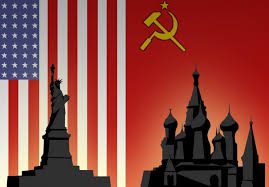Acknowledgments:
Expert Opinions – Caelan
Historical Analysis – Andrew
Current Issues – Michael
Counter-Arguments and What We Left Out – Horace, Michael, Andrew
Policy Suggestions – Horace
Works Cited:
Bordoff, Jason. “Sorry, but the Virus Shows Why There Won’t Be Global Action on Climate Change.” Foreign Policy, March 27, 2020.
Davenport, Stephen, Jana Kunicova and Emily Kallaur, “We’re All in This Together: Collective Action and Trust in the Age of Coronavirus.” The World Bank Blog, April 20, 2020.
Elias, Barbara. “Cyber and Information Warfare.” November 19, 2020.
Goldstein, Avery. Deterrence and Security in the Twenty-First Century: China, Britain, France and the Enduring Legacy of the Nuclear Revolution. Stanford University Press. 2000.
Hammes, Thomas X. 2006. The Sling and The Stone. St. Paul, MN: Zenith Press.
Lazer, David M. J., Matthew A. Baum, Yochai Benkler, et. al. “The Science of Fake News.” Science, March 9, 2018, Vol. 359, Issue 6380, pp. 1094-1096.
Lombroso, Daniel and Jeffrey Goldberg. “Obama’s ‘Red Line’ That Wasn’t.” The Atlantic, March 10, 2016.
Sagan, Scott D. “Why Do States Build Nuclear Weapons? Three Models in Search of a Bomb.” International Security 21:3 (Winter 1996/97), pp. 54-86.
Schelling, Thomas C. Arms and Influence. Yale University Press, 1966.
Singer, W.P. and Allan Friedman. Cybersecurity and Cyberwar What Everyone Needs to Know. Oxford University Press, 2014.
Smoke, Richard. National Security and the Nuclear Dilemma: an Introduction to the American Experience in the Cold War. McGraw-Hill, 1993.
Waltz, Kenneth N. “Why Iran Should Get the Bomb.” Foreign Affairs, vol. 91, no. 4 (July/August 2012), pp. 2-5.
Walzer, Michael. “The Triumph of Just War Theory (and the Dangers ofSuccess).” Social Research 69:4 (Winter 2002): 925-944.
